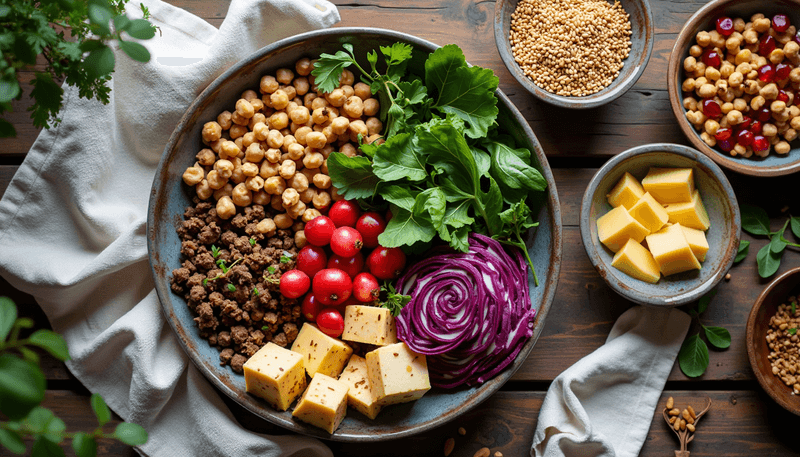Plant Power: Your Heart's Best Friend

As a women's health advocate and medical professional, I've seen firsthand how the transition through menopause can bring unexpected health challenges, particularly when it comes to heart health. Recent research from Bridgewater State University has revealed fascinating insights about how what we put on our plates can make a remarkable difference in protecting our hearts during these changes.
The Power of Plant-Based Protection
When it comes to heart health after menopause, think of your body as a fine-tuned engine that suddenly needs to adjust to running on different fuel. The decline in estrogen during menopause can make your cardiovascular system more vulnerable, but here's the good news: nature has provided us with powerful allies in the form of plant-based foods.
Did you know that postmenopausal women who follow a predominantly plant-based diet have a significantly lower risk of cardiovascular disease compared to those who don't?
The secret lies in compounds called phytoestrogens and antioxidants. Think of phytoestrogens as nature's gentle estrogen mimics - they help fill the gap left by declining natural estrogen levels. Foods rich in these compounds include:
- Soybeans and soy products
- Flaxseeds
- Chickpeas
- Lentils
- Fresh fruits and vegetables
The Mediterranean Connection
If you're wondering what an ideal heart-protective diet looks like, consider the Mediterranean approach. This isn't just another diet - it's a lifestyle that's been proven to support cardiovascular health, particularly for postmenopausal women.
Key components include:
- Abundant plant foods
- Olive oil as the primary fat source
- Limited red meat
- Regular inclusion of fish
- Moderate wine consumption (if desired)
Think of the Mediterranean diet as giving your heart a vacation - the kind where it can relax, repair, and rejuvenate.
The Soy Solution
One of the most fascinating findings from the research concerns soy proteins and isoflavones. These compounds are like your heart's personal bodyguards, helping to:
- Reduce bad cholesterol levels
- Improve blood vessel flexibility
- Lower inflammation
How to incorporate more soy:
- Replace dairy milk with soy milk in your morning coffee
- Add edamame to salads
- Use tofu in stir-fries
- Snack on roasted soy nuts
Question for reflection: What small change could you make tomorrow to add more plant-based proteins to your diet?
The Whole Picture
While individual components like soy and antioxidants are important, the research emphasizes that it's the overall pattern of eating that matters most. Think of it as orchestrating a symphony - each healthy food choice plays its part, but it's the combined effect that creates the masterpiece.
Some practical ways to begin:
- Start with Meatless Monday
- Add an extra serving of vegetables to each meal
- Replace processed snacks with fruits and nuts
- Experiment with new plant-based recipes weekly
The transition to a more plant-based diet doesn't have to be all-or-nothing. Small, consistent changes can lead to significant benefits for your heart health. Remember, every plant-based meal is an investment in your cardiovascular wellbeing.
Your heart has supported you through every beat of your life. Now it's time to return the favor with the power of plants.
Ready to take action? Start with just one meal tomorrow. Choose a plant-based option and notice how you feel. Your heart will thank you, and you might just discover some new favorite foods along the way.
Remember to consult with your healthcare provider before making significant dietary changes, especially if you have existing health conditions or are taking medications.

Dr. Anya Sharma, MD
Dr. Anya Sharma is a board-certified gynecologist with over a decade of experience specializing in women's health and patient education. She graduated from Johns Hopkins School of Medicine and completed her residency in Obstetrics and Gynecology at a top hospital in New York City. With a passion for empowering women, Anya transitioned to content creation to provide accessible, evidence-based information on health topics relevant to mid-aged women. Her empathetic and pragmatic approach combines medical expertise with relatable insights, making her a trusted voice in the field.






